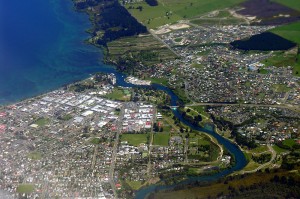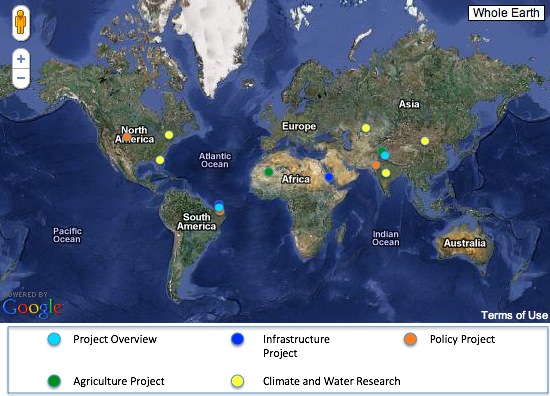water matters24
-

Maori Values; Modern Solutions
New Zealand’s longest river is also its most polluted, but Maori tribesmen have help to offer that goes beyond technology.
-

Flood Impacts: Don’t Forget Other Factors
As scientists continue to try to sort out climate change effects, it’s important to remember also that when it comes to the impact of floods, there are many factors outside of global climate change that affect outcomes for people. Here are a few.
-

Seawater Greenhouses Produce Tomatoes in the Desert
With the global population increasing by 80 million each year, a third of the planet will likely face water shortages by 2025. This looming water crisis is inextricably linked to food production…
-

Record-Breaking Amounts of Snow Raise Problems for Cities
These record breaking amounts of snow have caused numerous concerns both economical and environmental and as snowfalls pile up cities run out of room to put the snow. One suggested solution was to dump the snow into waterways even though it became a mixture of many pollutants including, but not limited to, motor oil and…
-
Floods in Eastern Sri Lanka and North-Eastern Australia: Contrasts in Disaster Risk Management
Due to the ongoing floods in Sri Lanka, more than a million people are affected, 185,000 were displaced and 16 had died by February 5, 2011. The impact has been most severe on Eastern Sri Lanka a “Disaster Hazard and Vulnerability Hotspot”. The purpose of this post is to publicize information resources to help target…
-

Wild Oysters Deemed ‘Functionally Extinct’
A recent Valentine’s Day-inspired article in the Grist pointed out that oysters are the only delicacy that enhances The Mood and water quality. Don’t get too excited, though: a new study published this week in BioScience revealed that oysters are “functionally extinct” in many parts of the world where they were once abundant, and nothing…
-

Recruiting Tiny Organisms to Detect Water Pollution
Climate change has huge implications for water pollution, so with increasing climate change effects and the concern that many regions on the planet are approaching peak water, timely water pollution detection is critical.
-

A New Look at Global Water Scarcity from Columbia Water Center
Columbia Water Center is committed to sharing and disseminating the knowledge from research and development projects we have completed and are currently working on. We aim to create a collaborative environment in which progress towards understanding and addressing the increasing demands and scarcity of freshwater can be made in the 21st century. To help visualize…
-

Finding Answers to the Worsening Water Crisis in Gujarat, India
As explained in a recent blog post, falling groundwater levels in the Northern regions of the state of Gujarat, India, are reaching dramatically dangerous proportions. Columbia Water Center (CWC), however, believes that there are numerous technologies and practices that could save significant amounts of water and energy. Farmers have shown interest in applying them, but…

By studying thousands of buildings and analyzing their electricity use, Columbia Climate School Dean Alexis Abramson has been able to uncover ways to significantly cut energy consumption and emissions. Watch the Video: “Engineering a Cooler Future Through Smarter Buildings“
